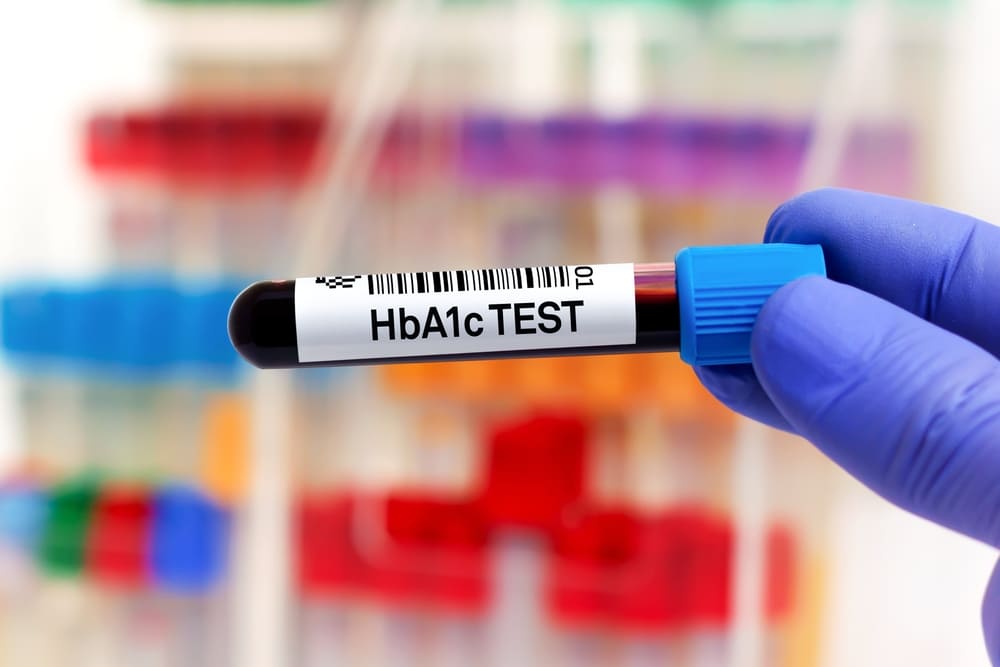Why are regular diabetes screenings and check-ups so important?
India is said to be the diabetes capital of the world. According to the Economic Times, quoting a study by the Indian Council of Medial Research, “The country now has 101 million diabetics, with a further 136 million pre-diabetic individuals in need of prevention.”
Yet, according to Kounteya Sinha, writing in the Times Of India, “Nearly 44 lakh Indians in their most productive years — aged 20 to 79 years — aren’t aware that they are diabetic.”
This means that most people don’t go for regular screenings or medical checkups to proactively identify if they have diabetes. The disease may quietly escalate in their bodies, and they may never know till severe signs become visible.
In this blog post, we’ll dive into the world of diabetes to understand why regular consultations and check-ups are not just essential but crucial.
Diabetes is not merely a disease of high blood sugar – it’s a significant risk factor for several other serious medical situations. But here’s the good news: early detection can make all the difference.
The silent danger of diabetes and its effects
According to United We Care, diabetes is often called a “silent” disease because it quietly wreaks havoc on the body without noticeable symptoms in its early stages. This is what makes it all the more dangerous. You may feel perfectly fine, yet beneath the surface, diabetes can be causing subtle but significant damage.
In the beginning, when blood sugar levels are only slightly elevated, you might not experience any symptoms. The lack of warning signs can lull people into a false sense of security. They may delay seeking medical attention, assuming everything is fine. However, this may be far from the truth.
According to WebMD, undiagnosed and uncontrolled diabetes carries many serious risks. The elevated blood sugar levels associated with diabetes can damage blood vessels and nerves throughout the body, setting the stage for various complications.
Heart disease becomes a lurking threat, as diabetes significantly increases the risk of heart attacks and strokes. The kidneys, too, can suffer irreparable harm, potentially leading to kidney failure. Vision impairment is another menacing consequence, as diabetes is a leading cause of blindness among adults.
Benefits of early detection of diabetes
According to Sarah Falcone, writing in My Virtual Physician, early detection of diabetes is the critical first step towards effectively managing this chronic condition and safeguarding your health. Preemptive detection empowers individuals with the knowledge of their diabetes status. Knowing that you have diabetes or are at risk of developing it allows timely interventions. With early awareness, you gain the upper hand in managing your condition rather than being caught off guard.
Another compelling reason for swift detection is its potential to prevent or delay complications. Diabetes, if left unchecked, can damage other organs of the body severely over time. Early intervention can distinguish between a life marred by these complications and a life of relative normalcy.
Finally, prompt detection doesn’t just extend life – it also significantly improves life quality. Those diagnosed and treated quickly often experience fewer health-related limitations, allowing them to maintain an active and fulfilling lifestyle.
Remember, regarding diabetes, knowledge is not just power – it’s a lifeline to a brighter and healthier future.
Diabetes assessments – who needs them?
Diabetes can affect anyone, but specific individuals are at a higher risk and should be more regular with health reviews. According to the American Heart Association (AHA), “Some diabetes risk factors can be controlled by the lifestyle choices you make. These are called modifiable risk factors. Those that you can’t change are non-modifiable risk factors.”
If you fall into any of these categories below, it’s essential to be proactive:
- Family history: If you have a family history of diabetes, especially if a parent or sibling has been diagnosed, your risk is elevated. Regular evaluations are crucial to catch any signs of diabetes.
- Obesity: Excess body weight, particularly around the waistline, is a significant risk factor for Type 2 diabetes. Regular doctor appointments are vital for individuals struggling with significant weight gain.
- Sedentary lifestyle: If your daily routine involves prolonged periods of sitting or a lack of physical activity, you are at greater risk of developing diabetes. You would benefit from earlier medical examinations.
- Age: People aged 45 and older should consider regular diabetes tests, especially if they have other risk factors. However, diabetes increasingly affects younger populations, so everyone should be mindful of their health.
According to Karly Pippitt, MD, et al., writing in American Family Physician, “Based on expert consensus, current guidelines recommend annual screening in high-risk patients or those with results nearing diagnostic thresholds. For average-risk patients with normal screening results, testing can be repeated every three years.”
The review process – what to expect?
Diabetes checking routines are simpler and less invasive than you might imagine, yet their impact on your health is profound. Here is what your doctor will look for:
1. Blood tests for diabetes
The most common method for diabetes identification involves blood tests. It is important to keep a record of your tests whether it is done in a lab or at home with a glucometer to help doctors provide an effective management of your sugar levels. Four primary blood tests are used to diagnose and monitor diabetes:

- HbA1c Test: This test measures your average blood sugar levels over the past two to three months. It offers a reliable long-term view of your blood sugar control.
- Fasting Blood Sugar Test: This test requires you to fast for at least eight to twelve hours (usually overnight). It measures your blood sugar level after fasting. Elevated fasting blood sugar levels may indicate diabetes.
- Random Sugar Test: This test can be done anytime of the day. In this a glucometer device is used. A glucometer is a portable medical device used to measure a person’s blood glucose level by pricking a fingertip to obtain a small blood sample. This blood sample is then applied to a specialized strip inserted into the glucometer, which contains enzymes that react with the glucose in the blood. The glucometer analyzes this reaction to provide a precise and immediate reading.
- Post Meal Glucose Test: This test tells you the rise in sugar levels after intake of breakfast. For this test, you need to give blood sample 2 hours after breakfast.
Please note, you should take all your regular medication as advised by your treating physician and there is no need to stop any of your medication for these tests.
2. Other examinations
In addition to diabetes blood tests, your doctor may conduct other appraisals. Most often, doctors check for the existence of a combination of ailments such as obesity, cholesterol, diabetes, and hypertension – along with other hereditary factors. When these are present together, they can have a multiplicative impact on the heart.
In addition to identifying and monitoring blood sugar, your doctor would advise you to get frequent audits for cholesterol levels, rising blood pressure, and signs of obesity.

The importance of regular analysis
It’s not just a first inspection that is vital. Frequent doctor visits can help closely monitor your blood sugar levels over time. This tracking is essential for understanding how well your treatment plan works and whether any adjustments are necessary.
Since diabetes can lead to other complications, periodic vigilance and timely interventions can help prevent or manage developing conditions such as emerging eye problems, kidney disease, or nerve damage.
Health monitoring also provides opportunities to receive ongoing education and support. Your doctor can offer guidance, making informed choices for a better lifestyle.
In summary
There could be many reasons for not getting yourself screened for diabetes. Some of the most common reasons include the cost, lack of awareness, time constraints, lack of transportation, busy schedules, or language issues.
But most often, there is one barrier that really gets people to hesitate: it’s the fear of receiving a diabetes diagnosis. But do remind yourself that early detection allows for more manageable treatment options. So, talk to your doctor about your concerns and ease your fears.
In the end, your health is an invaluable asset. So, don’t wait. Get to your clinic as soon as possible, and you’ll do yourself and your health a great favor.
References
- Economic Times. “India has over 100 mn diabetics & 136 mn pre-diabetics, says new ICMR study; Goa tops the list, UP records lowest prevalence.” Accessed: October 17, 2023. https://economictimes.indiatimes.com/magazines/panache/india-has-over-100-mn-diabetics-136-mn-pre-diabetics-says-new-icmr-study-goa-tops-the-list-up-records-lowest-prevalence/articleshow/100866686.cms
- Sinha, Kounteya. Times Of India. “44 lakh Indians don’t know they are diabetic.” Accessed: October 17, 2023. https://timesofindia.indiatimes.com/india/44-lakh-indians-dont-know-they-are-diabetic/articleshow/17274366.cms
- United We Care. “Why Diabetes Is Known As the Silent Killer.” Accessed: October 17, 2023. https://www.unitedwecare.com/why-diabetes-is-known-as-the-silent-killer/
- WebMD. “How Does Diabetes Affect Your Body?” Accessed: October 17, 2023. https://www.webmd.com/diabetes/risks-complications-uncontrolled-diabetes
- Falcone, Sarah. My Virtual Physician. “Why Early Detection is Key in Diabetes.” Accessed: October 17, 2023. https://myvirtualphysician.com/2020/11/30/why-early-detection-is-key-in-diabetes/
- American Heart Association (AHA). “Diabetes Risk Factors.” Accessed: October 17, 2023. https://www.heart.org/en/health-topics/diabetes/understand-your-risk-for-diabetes
- Pippitt, Karly, MD, et al. American Family Physician. “Diabetes Mellitus: Screening and Diagnosis.” https://www.aafp.org/pubs/afp/issues/2016/0115/p103.html



















